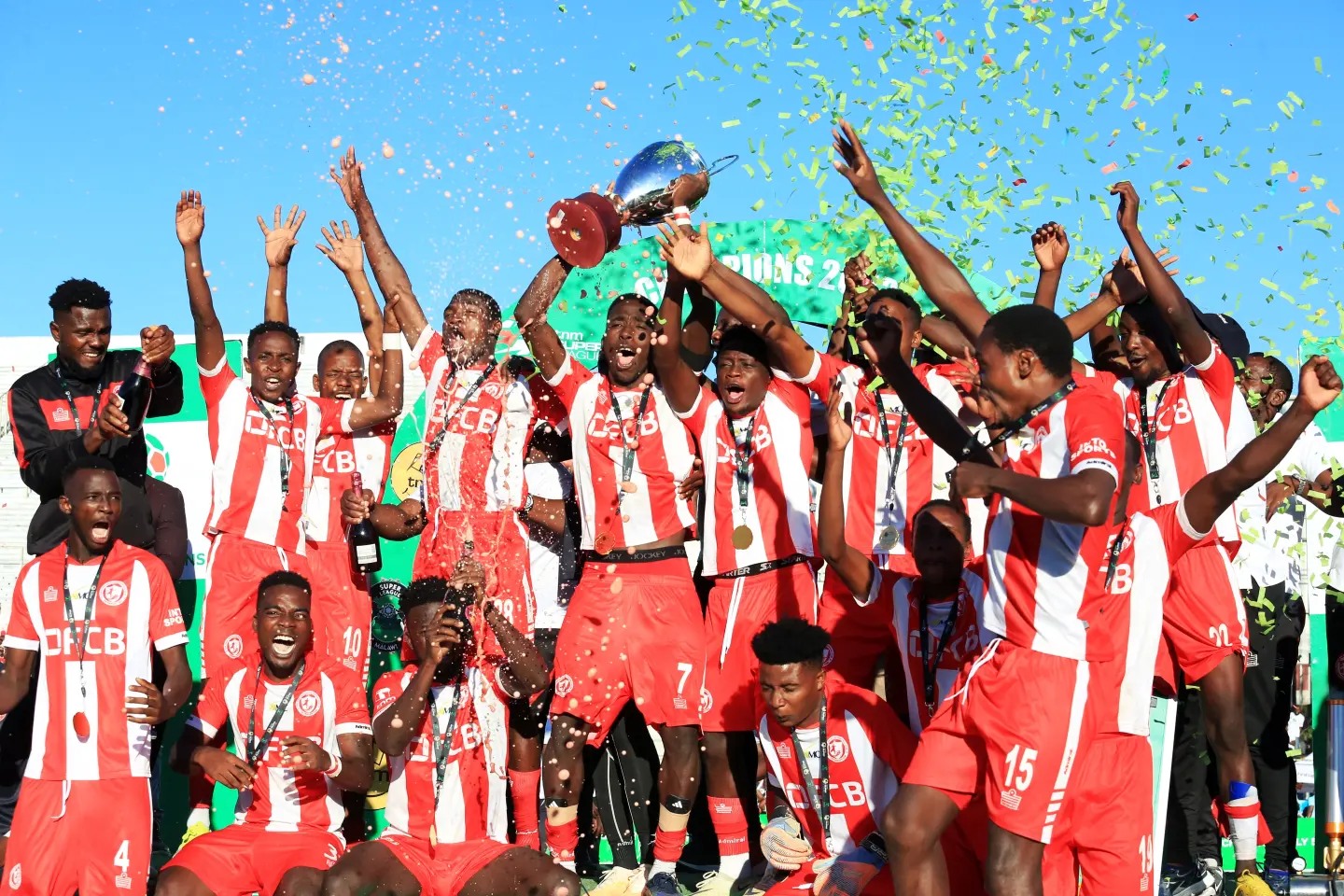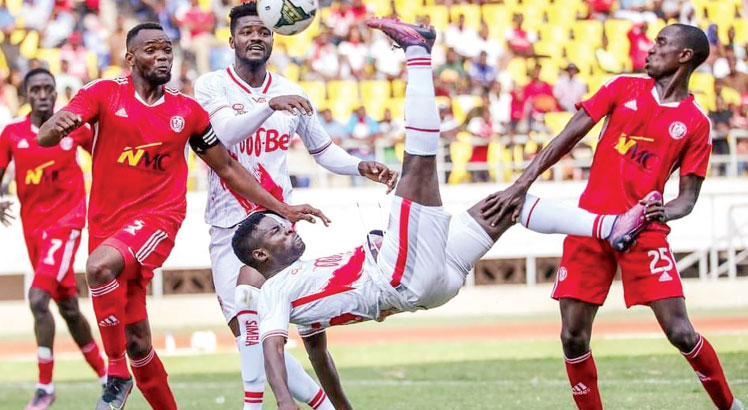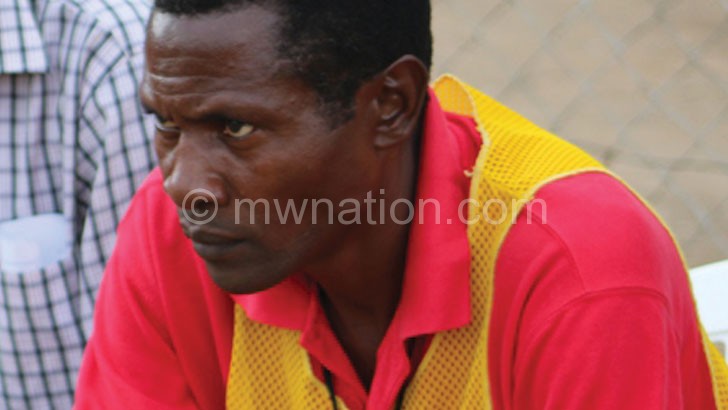Why hooliganism is on the rise

The number of stewards, especially trained ones, has shrunk from 350 to 200 countrywide amid escalating hooliganism and violence which has left domestic football teetering on the brink of crisis.
National Stewards coordinator Pascal Nkuta told Nation on Sunday in an exclusive interview that stewards are demoralised by lack of incentives and training as they are forced to improvise their own crowd-control strategies.
For example, Nkuta revealed that there were only 26 stewards at Balaka Stadium where an explosion of crowd trouble during Mighty Wanderers’ TNM Super League meeting with Silver Strikers left a Nomad fan, Lemiyasi Josita, dead on December 28 2013.
“Some of them resisted deployment. There are few who are courageous enough and this goes back to the issue of training. We last had training in 2001 and, along the way, we have lost track. I thought FAM and Sulom should have been saying how do we motivate stewards?” said the former Mighty Wanderers’ chief supporter.
“Take it or leave it, all stakeholders are to blame. Our deployment strategy in Balaka failed as there were few in the terraces. Only training in crowd control can correct this. In 2001, the British government sponsored our training alongside the police. There were 350 stewards trained, but few are active. The remaining number should be around 200 in the whole country.”
The stewards work voluntarily and are given a small portion of gate collections and they have no fixed rates, according to Nkuta.
The Balaka incident was compounded by deployment of just 20 police officers against 40 which Balaka Police Station requested, publicist Joseph Sauka told the press in the aftermath of the incident.
“The role of the police during the match was unprofessional as they deliberately let Silver Strikers supporters beat up a Mighty Wanderers supporter, a Mr. Amos, who was dressed in tight regalia in form of a dress. The Silver Strikers [supporters] were led by Bruno Makina, Mdala Yusuf, Alick Meja and Austin Phiri,” reads a Sulom Appeals Committee report on the incident.
“The police later fired tear gas while the evacuation gates were closed which caused a stampede among the supporters. The Appeals Committee noted that the role of the police is to control the supporters from unruly behaviour, provide security and safety of the general public as well as protection of gate collections.”
Apart from the death, some 20 fans suffered multiple injuries and the stadium is in shambles forcing owners Balaka District Council to ask Sulom to pay K4 million for repairs.
Silver and Wanderers have challenged their K5.2 million and K700 000 respective fines in addition to four and six-competitive game bans which Sulom Appeals Committee meted out. Sponsors TNM Malawi Limited’s have since expressed concern that its brand name is being soiled.
What went wrong?
Cases of violence were also rampant at the turn of the century, forcing the Ministry of Sports and Youth and the Football Association of Malawi (FAM) to develop crowd-control blueprints that are gathering dust in offices.
Former FAM chief executive officer Charles Nyirenda came up with a document on May 21 2008 on crowd control after a meeting that attracted the police and stewards at the Chiwembe Technical Centre.
During the week, Nyirenda said there were noticeable lapses in crowd control.
“Over the past one year, there has been a breakdown of security culminating in the Balaka violence. Organisers need to be serious on issues of safety. During our time, we were so strict on crowd behaviour at soccer venues and it worked,” Nyirenda noted on Tuesday.
The 2008 meeting observed several security lapses, including that “the problem here in Malawi is that the manpower deployed is always insufficient to control the crowd.
“Liquor and chamba (drinking and smoking) respectively have been a tradition of fans at our stadiums and this was highlighted as one of the catalysts of hooliganism and violence,” said the meeting’s report.
During the meeting, a police officer admitted to have come to his senses that “it was a very sad development to disperse violent fans by using ‘tear-gas canes.’”
FAM and Sulom have also not enforced a government manual titled ‘Operating Manual for Curbing Hooliganism and Related Violence at Sports Venues’ produced in 2005.
The violence that punctuated the Flames’ World Cup qualifying match against Tunisia and Bakili Bullets’ CAF meeting with Enyimba of Nigeria on October 10 and 17 2004 respectively at the Kamuzu Stadium culminated in the production of FAM’s manual.
The document cited several things as inciting violence and hooliganism, including the sale of match tickets on the day of the game at the very same venue, ‘sale of alcohol within and near the premises of the game, possession of items such as glass bottles, green maize and other acts such as gesturing in a manner likely to incite violence. Sale of green maize was also to be banned.
Failure to limit access to the pitch and dressing rooms of only accredited people and free entries and unrestricted movement of fans across the terraces, were also cited as other causes.
Solution
The 2008 meeting which Nyirenda chaired, resolved to ban the sale of bottled drinks inside football venues and that “fans entering the stadium should be searched to block the use of weapons [such as] knives, darts, bottles and stones.”
The 2005 manual also recommended advance ticket sales and the banning of alcohol sales within and around stadiums.
It also stipulated that suspected drunkards and trouble-markers should not be allowed entry into stadiums and that football officials should adhere strictly to instructions as agreed in pre-match meetings.
Futhermore, the manual also urged FAM, in conjunction with clubs, to introduce membership and identification cards for their supporters and that each sports association should have security committees.





